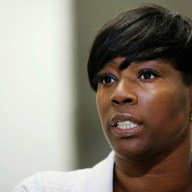Given we are starting to glimpse the light at the end of this gruelling tunnel referred to by some as the Great Recession, the general population has settled with the conclusion that this crisis — as it was — is an anomaly.
According to authors Nouriel Roubin and Stephen Mihm, crises are a natural occurrence, with far more predictability than is realized.
“Crises, we argue, are neither the freak events that modern economics has made them seem nor the rare ‘black swans’ that other commentators have made them out to be” says Roubin and Mihm.
Cobbled together as part history lesson, current case study and crystal ball gazing, Crisis Economics lays out a number of global examples of financial collapse including the speculative bubble in tulips in Holland in the 1630s, the South Sea Bubble of 1720 and, of course, the Great Depression of the 1930s amongst others.
What I found especially helpful was the explanation of financial jargon that the authors argue even some economists don’t quite understand. You’ve heard the buzz words — designed to make simple things seem more complicated than they need be — “moral hazard, leverage, bank run, regulatory arbitrage, current account deficit, securitization, deflation, credit derivative, credit crunch and liquidity crunch, to name a few.”
Other than the fact that as a public we are recession fatigued, as the old adage goes: Those who don’t know history are destined to repeat it — this is the book we all hope our money managers and politicians have read or plan to read.
Craig Lund, a director with the staffing firm Marketers on Demand, can be reached at craig.lund@marketersondemand.com
















